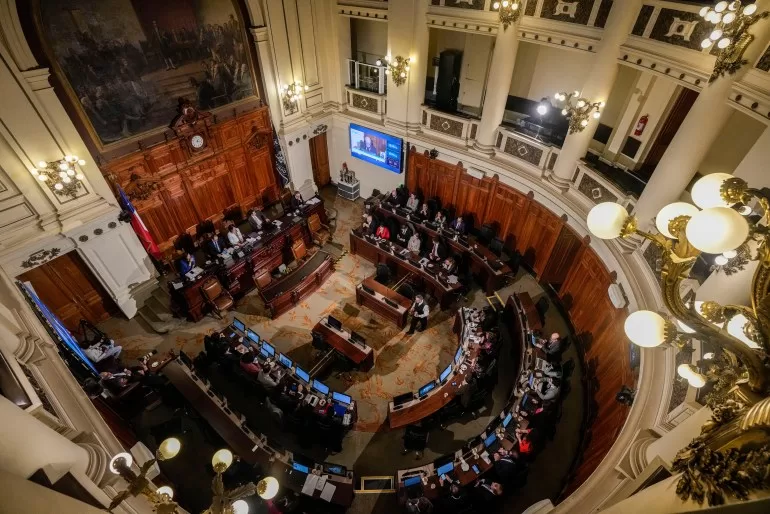The vote is taking place for the second time, after the previous progressive constitution text draft was rejected.
The latest version was overseen by the far-right opposition Republican Party after voters roundly rejected a progressive draft in September 2022 that attempted to enshrine environmental protections and the right to elective abortion.
Voting started at 8am (11:00 GMT) and was due to close at 6pm (21:00 GMT), with results due a few hours later.
The history of the current constitution stretches back to 1980 when Augusto Pinochet – a ruler who oversaw the mass abduction and execution of his left-wing critics – appointed a government commission to draft a legal framework to formalise his authority.
Leftist President Gabriel Boric said last month that it would be his last attempt to reform the constitution in order to focus on stability and long-term development.
Why is the vote taking place?
In 2019, concerns over social welfare simmered into widespread anti-government protests. Millions of Chileans flooded the streets, voicing a spectrum of demands, including calls for better public healthcare, fairer access to education, abortion rights and pension reform.
Many protesters singled out Pinochet’s constitution as the root cause of the discontent. That prompted Chile’s government to hold a referendum in 2020 to decide whether to ditch the old charter and write a new one.

Last September, the first assembly elected to draft a new text was dominated by left-wing forces but their draft, which focused on social, Indigenous, environmental and gender rights, was overwhelmingly rejected by voters.
The electorate then swung right for the second draft and voters elected an assembly dominated by conservative parties.
That text is now up for a vote on Sunday and is considered to be more conservative and market-friendly than the 1980 constitution it could replace.
The proposed version places private property rights and strict rules around immigration and abortion at its centre.
What do polls predict?
For months, polls have shown that voters are likely to reject this proposal too, but the gap tightened in the lead-up to the referendum.
Pollster Cadem’s last survey on December 1, before a 15-day poll blackout, showed 47 percent planned to vote against the text versus 38 percent who planned to approve it.
Ahead of the vote, Nanco Antilef, a member of the Democratic Revolution party, also found himself in a paradoxical position: hoping to keep the old version in place.
“It’s not that we are defending Pinochet’s constitution. It’s just that this proposal is worse,” he told Al Jazeera in a recent interview.
The result, critics say, is a draft that favours right-wing priorities at the expense of historically marginalised groups, including Chile’s Indigenous peoples.
“It is tied to a business model and favours individual interests rather than collective ones,” said Antilef, himself of Indigenous Mapuche descent.
Now, he and other Indigenous Chileans are pushing for voters to reject the draft constitution, even if that means the country will be stuck with the Pinochet-era version for the foreseeable future.
